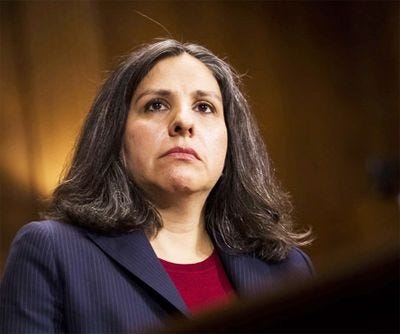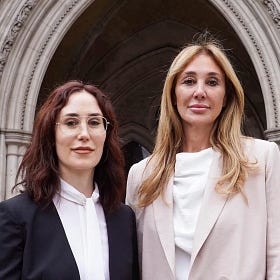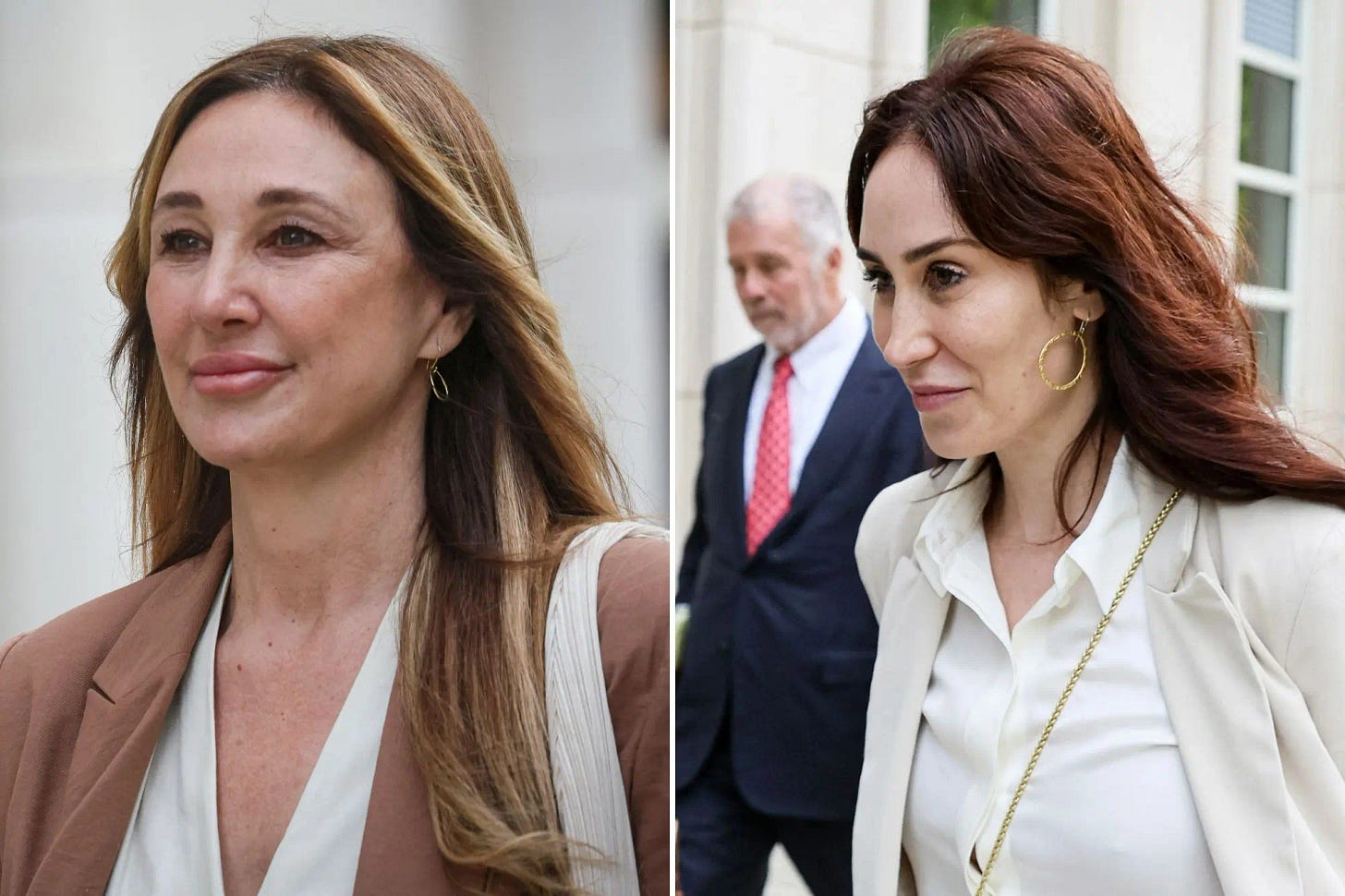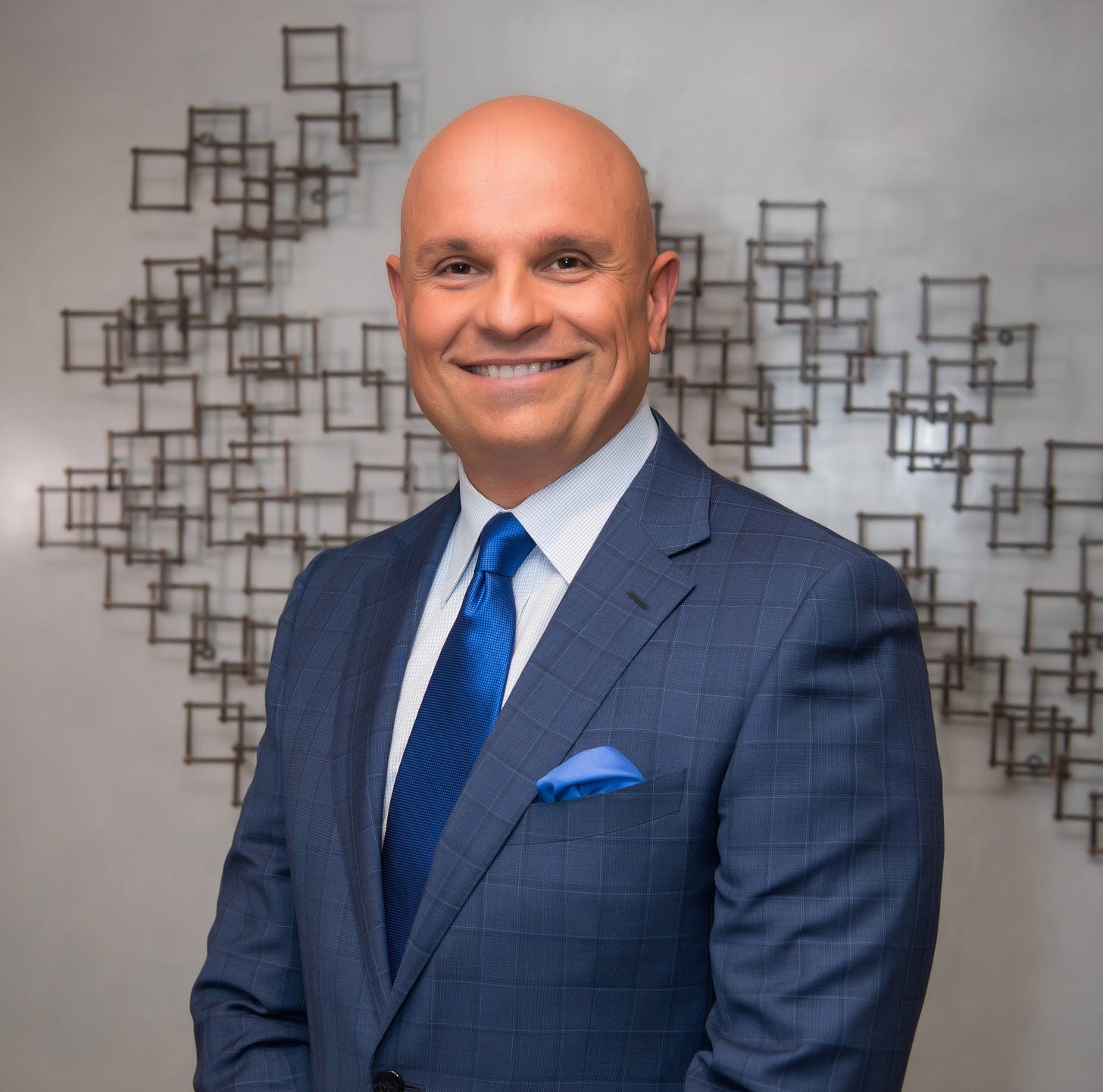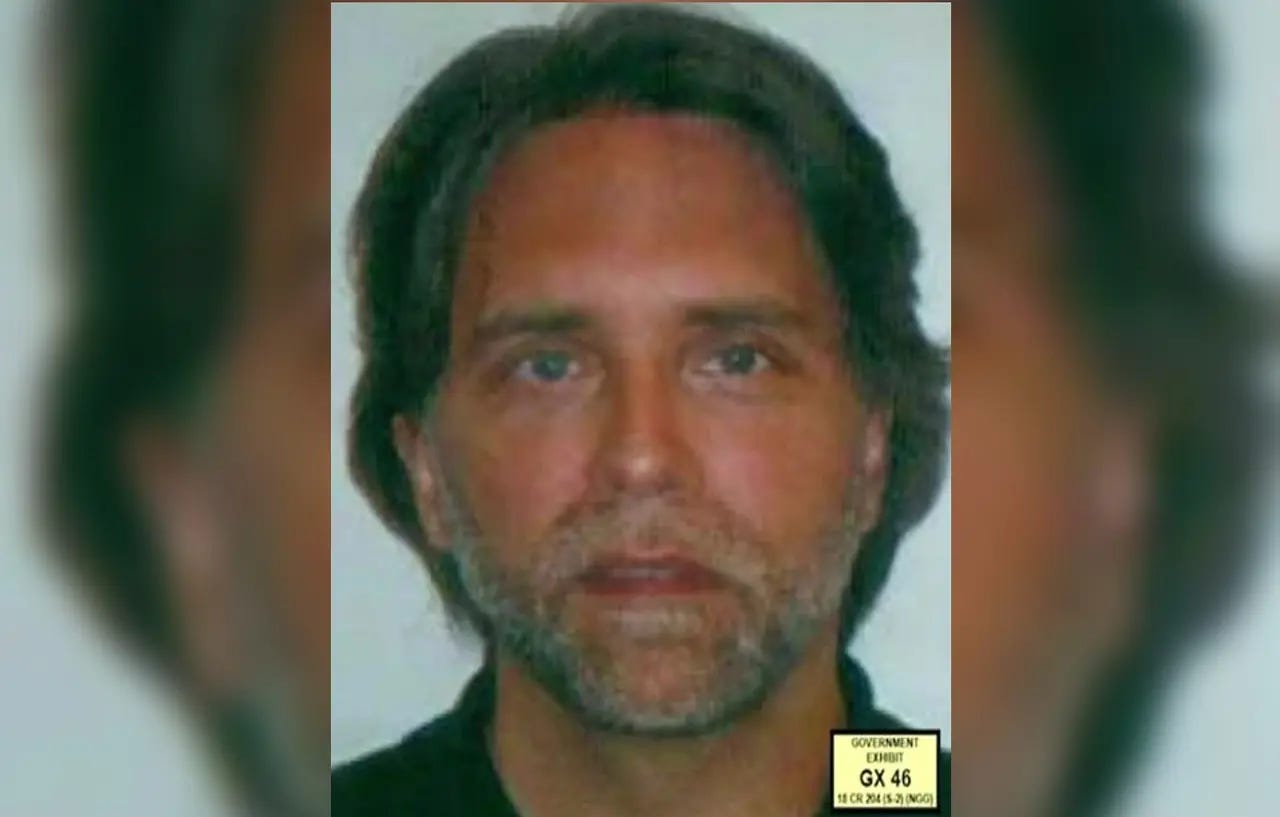Is Diane Gujarati the Judge in the OneTaste Case or the Chief Prosecutor? Sometimes It’s Hard to Tell
Eastern District Judge's Discovery Rulings Threaten Fair Trial in OneTaste Case, Raising Questions About Bias
By Richard Luthmann
Diane Gujarati has been an Article III federal judge for half a decade, appointed in 2020 to the Eastern District of New York. However, her background as a federal prosecutor has raised concerns that she may not have left her prosecutor’s mindset behind.
As the presiding judge in the OneTaste case, her rulings and conduct have been scrutinized, leading many to question whether she’s truly impartial or simply acting as a rubber stamp for the government.
The trial of OneTaste founder Nicole Daedone and former head of sales Rachel Cherwitz on conspiracy charges to commit forced labor has drawn national attention.
FEDERAL SEX: THE GRAND HYPOCRISY
"It's the first time in the history of the United States that anybody's been charged just with forced labor conspiracy alone without actually committing the crime of forced labor … The U.S. attorney wrote, 'We do not have to have any victims for the crime of conspiracy to commit forced labor.' All they have to prove is that the two parties conspired." -…
Despite the salacious headlines about "Orgasmic Meditation" and accusations of psychological coercion, it’s crucial to note that no sex crimes are charged. Yet, the government's prosecution hinges on portraying consensual practices as abusive.
The defendants have not been accused of sex trafficking, sexual assault, or even substantive forced labor.
Instead, they face a novel charge: conspiracy to commit forced labor, a charge that has never been brought on its own in U.S. history. Judge Gujarati's role in managing the discovery process and her potential biases could determine whether this is a fair trial or a sham from the start.
A Rubber Stamp for the Government?
Judge Gujarati’s background as a career federal prosecutor has raised concerns that she may still be functioning more as an arm of the government than an impartial Article III judge. Her rulings on discovery issues in the OneTaste case will be the litmus test.
The defense has repeatedly argued that it is being denied critical evidence, and the government aggressively moves to limit what the defense can present or access.
According to the case docket, the government has filed motions in limine to block the defense from cross-examining key witnesses about inconsistencies and financial motives. These motions, spanning 130 pages, are designed to prevent the jury from hearing crucial facts about witness credibility and the government’s reliance on dubious testimony.
The defense, represented by Bonjean Law Group and Aidala, Bertuna & Kamins, PC, has raised concerns that Judge Gujarati is enabling the government’s overreach.
In their filings, they assert, "The government seeks to overwhelm the jury with excessive and largely irrelevant evidence that has no nexus to the charged offense of forced labor conspiracy or to the Defendants."
Yet Gujarati has shown no signs of putting the brakes on this strategy. She seems poised to allow prosecutors to flood the trial with a mix of hearsay, anonymous sources, and unsubstantiated claims without forcing the government to provide concrete evidence of harm or forced labor.
As the defense points out, the government "did not charge a single count of forced labor itself, much less sex trafficking or prostitution," yet they continue to push a narrative of sexual misconduct.
The government is conflating a consensual lifestyle choice with criminality, and Judge Gujarati’s rulings will be crucial in determining whether the defense can effectively challenge this.
The Ghost of Judge Irizarry’s Rulings
If Judge Gujarati follows the path laid out by EDNY Judge Dora Irizarry in the 2019 United States v. Zhong case, we may be headed for a similar debacle. In that case, the Second Circuit vacated the bogus 190-month sentence and threw out the forced labor conspiracy charges.

In that case, the government pushed an espionage narrative to support a forced labor charge against a Chinese national and former diplomat working as a construction executive. Judge Irizarry allowed victim witnesses to testify under pseudonyms, shielding their identities from scrutiny.
The case, built on sensationalism and espionage claims, resulted in a conviction that the Second Circuit Court of Appeals ultimately vacated.
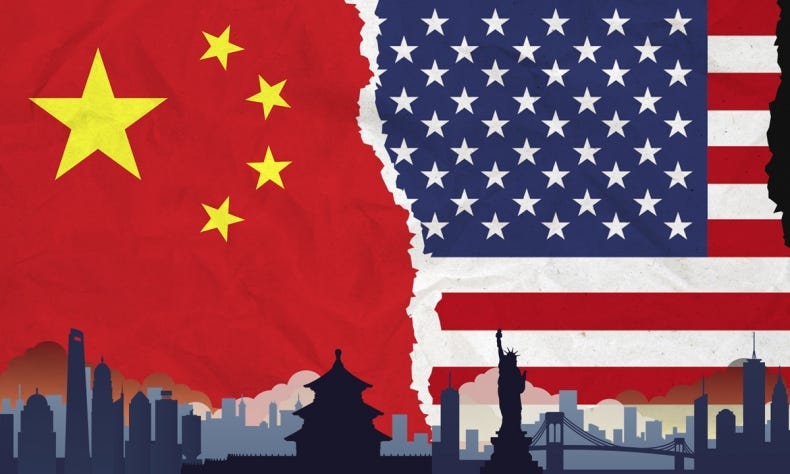
In vacating Zhong's forced labor conspiracy conviction, the Second Circuit lambasted Irizarry’s rulings. The appellate court found that the judge had allowed highly prejudicial and minimally relevant testimony, including speculative accounts from an expert witness who "came dangerously close to usurping the jury’s function" by offering conclusions of guilt.
The Second Circuit was clear: the government’s narrative was built on evidentiary errors, and those errors significantly influenced the jury.
The parallels between Zhong and OneTaste are troubling. In both cases, the government has relied heavily on inflammatory accusations without substantive evidence to back them up.
In Zhong, the government invoked espionage; in OneTaste, they’ve latched onto sexual innuendo.
Judge Gujarati risks repeating the same mistakes by allowing the government to obscure the actual charge—conspiracy to commit forced labor—under a cloud of salacious accusations and shaky testimony.
Discovery Rulings Could Make or Break the Case
The heart of the defense's concern lies in Judge Gujarati’s discovery rulings, which have thus far favored the government. The government’s motion to keep certain witnesses anonymous and prevent cross-examination on their past sexual behavior is a red flag.

The defense argues that this prevents them from demonstrating these witnesses' bias and ulterior motives.
The Eastern District’s own precedents, as seen in United States v. Zhong, demonstrate how unchecked prosecutorial tactics can lead to unjust convictions.
In Zhong, the Second Circuit found that anonymous testimony deprived the defense of its constitutional right to confront witnesses. Similarly, in the OneTaste case, the defense contends that the government is attempting to use anonymous testimony to bolster its forced labor conspiracy claim without providing concrete evidence of any victim.
The defense has argued that the government admitted in court documents that there need not be any victims to prove forced labor conspiracy. This precedent-setting argument undermines fundamental principles of justice.
Furthermore, the defense’s right to probe into the credibility of the government’s witnesses, many of whom have financial incentives, is being curtailed. One key witness, Michal Neria, has a financial motive to exaggerate her claims, having already filed civil suits against OneTaste.
Another witness, Ayries Blanck, has a history of violent behavior and has been accused of physical abuse in her personal relationships. Judge Gujarati risks presenting a one-sided narrative to the jury by limiting the defense's ability to explore these issues.
Will the Trial Be a Show or a Sham?
The stakes in this case go beyond the specific charges. The outcome of the OneTaste trial could have lasting implications for how consensual sexual practices and non-traditional lifestyles are treated under the law.
The government’s reliance on vague allegations and sensationalized media reports is reminiscent of the Keith Raniere case but without the same substantive evidence. As media reports have pointed out, this case appears more like a “rerun” of the NXIVM prosecution—except this time, there is no “sex cult,” no non-consensual acts, and no actual charges of sexual misconduct.
If Judge Gujarati continues to defer to the government on discovery issues and evidentiary rulings, this trial could become a show trial—more about media spectacle than justice. Her handling of the case will be a test of whether the Eastern District can provide a fair trial in high-profile, controversial cases.
If she follows in Judge Irizarry’s footsteps, the Second Circuit may once again have to step in to reverse an unjust conviction.
The constitution demands judgment from Article III judges, not prosecutorial deference. As the trial unfolds, we will see whether Diane Gujarati is up to the task. The defendants in this case deserve a fair trial, not a show trial built on innuendo, biased rulings, and a one-sided narrative. The public deserves better, and the legal system demands it.





